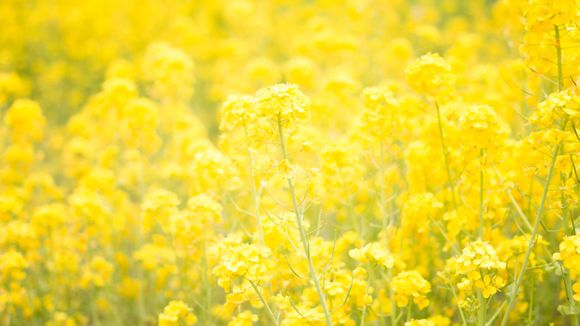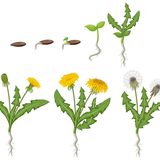Possible Diseases and Conditions:
1. Hepatitis
Hepatitis is a viral infection that affects the liver and can cause jaundice. There are several types of hepatitis, including hepatitis A, B, C, D, and E. Hepatitis A and E are usually spread through contaminated food or water, while hepatitis B, C, and D are spread through blood-to-blood contact, such as through sharing needles or having unprotected sex. Symptoms of hepatitis include fatigue, abdominal pain, loss of appetite, nausea, and jaundice. If you suspect you have hepatitis, it is important to consult with a gastroenterologist, who can perform blood tests to confirm the diagnosis and prescribe antiviral medications or other treatments as necessary.
2. Cirrhosis
Cirrhosis is a chronic liver disease that can lead to jaundice. It occurs when healthy liver tissue is replaced by scar tissue, which can happen as a result of long-term alcohol abuse, chronic hepatitis B or C infection, or other conditions that damage the liver. Symptoms of cirrhosis include fatigue, abdominal pain, loss of appetite, nausea, and jaundice. If you suspect you have cirrhosis, it is important to consult with a hepatologist, who can perform blood tests, imaging studies, or a liver biopsy to confirm the diagnosis and recommend treatments such as medication, lifestyle changes, or surgery.
3. Gallstones
Gallstones are hardened deposits of bile that can block the bile duct and cause jaundice. They can form when there is an imbalance of cholesterol, bile salts, or other substances in the bile. Symptoms of gallstones include severe abdominal pain, nausea, vomiting, and jaundice. If you suspect you have gallstones, it is important to consult with a gastroenterologist, who can perform imaging tests such as an ultrasound or CT scan to confirm the diagnosis and recommend treatments such as medication or surgery.
4. Pancreatitis
Pancreatitis is an inflammation of the pancreas that can lead to jaundice. It can occur as a result of gallstones, alcohol abuse, or other factors that damage the pancreas. Symptoms of pancreatitis include severe abdominal pain, nausea, vomiting, and jaundice. If you suspect you have pancreatitis, it is important to consult with a gastroenterologist, who can perform blood tests, imaging studies, or a pancreatic biopsy to confirm the diagnosis and recommend treatments such as medication, lifestyle changes, or surgery.
5. Cancer
Cancer of the liver, bile ducts, or pancreas can cause jaundice. It can occur as a result of chronic inflammation, exposure to toxins, or genetic factors. Symptoms of cancer include unexplained weight loss, fatigue, abdominal pain, nausea, and jaundice. If you suspect you have cancer, it is important to consult with an oncologist, who can perform imaging tests such as an MRI or PET scan, or a biopsy to confirm the diagnosis and recommend treatments such as chemotherapy, radiation therapy, or surgery.

Photo by Sean Stratton on Unsplash
Herbal and natural remedies
While it is important to consult with a medical professional if you suspect you have jaundice, there are also herbal and natural remedies that may help alleviate the symptoms. Some of these remedies include:
Milk Thistle (Silybum marianum):
Milk thistle is a herb that has been traditionally used to support liver function. It contains a compound called silymarin, which has been shown to have antioxidant and anti-inflammatory properties.
Dandelion (Taraxacum officinale)
Dandelion is a herb that has been traditionally used to support liver and gallbladder function. It contains compounds that may help improve bile flow and reduce inflammation.
Turmeric (Curcuma longa)
Turmeric is a spice that contains a compound called curcumin, which has been shown to have antioxidant and anti-inflammatory properties. It may also help support liver function.
Andrographis (Andrographis paniculata)
Andrographis is a herb that has been traditionally used in Ayurvedic medicine to support liver function and reduce inflammation. It contains compounds called andrographolides, which have been shown to have antioxidant and anti-inflammatory properties.
Globe Artichoke (Cynara scolymus)
Globe artichoke is a herb that has been traditionally used to support liver function and improve digestion. It contains compounds called cynarin and chlorogenic acid, which have been shown to have antioxidant and anti-inflammatory properties.
Schisandra (Schisandra chinensis)
Schisandra is a herb that has been traditionally used in Traditional Chinese Medicine to support liver function and reduce stress. It contains compounds called lignans, which have been shown to have antioxidant and anti-inflammatory properties.
Licorice (Glycyrrhiza glabra)
Licorice is a herb that has been traditionally used to support liver function and reduce inflammation. It contains compounds called glycyrrhizin and flavonoids, which have been shown to have antioxidant and anti-inflammatory properties.

Photo by Bermix Studio on Unsplash
Medications, allergies and foods that can cause jaundice
Medications that can cause jaundice:
- Acetaminophen (active compound: N-acetyl-p-benzoquinone imine)
- Chlorpromazine (active compound: Chlorpromazine)
- Erythromycin (active compound: Erythromycin)
- Nitrofurantoin (active compound: Nitrofurantoin)
- Phenobarbital (active compound: Phenobarbital)
- Rifampin (active compound: Rifampin)
- Sulfonamides (active compound: Sulfonamides)
- Tetracycline (active compound: Tetracycline)
Allergies that can cause jaundice:
- Drug allergies (such as an allergy to penicillin)
- Food allergies (such as an allergy to peanuts)
Foods that can cause jaundice:
- Fava beans (due to their high content of a substance called vicine)
- Soy products (due to their high content of phytoestrogens)
It's important to note that jaundice can also be caused by various medical conditions such as hepatitis, liver cirrhosis, and bile duct obstruction. If you experience symptoms of jaundice, it's important to seek medical attention to determine the underlying cause.








